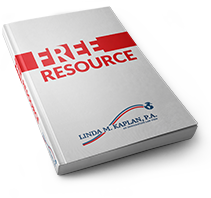As of May 31, 2019, new questions were added to the forms by which persons apply for non-immigrant visas such as tourist and student visa as well as to applications for immigrant visas. These questions were previously asked only in limited circumstance when a consular officer thought it was necessary to confirm a visa applicants’ identity or if additional scrutiny was considered necessary for terrorism or national security reasons. This would normally come up when persons had traveled to areas controlled by terrorist organizations. They are now asked of all visa applicants. In the updated forms, applicants are asked to disclose the social media platforms that they have used within the previous five years and to provide their username for each platform. There is a drop-down menu listing the most common platforms. It should be noted that passwords are not required and should not be provided. The forms also ask for current emails and phone numbers as well as a list of all email addresses and phone numbers used in the past five years. If a person does not remember they can answer “unknown” but this may trigger additional screening during the application process. Time magazine estimated that the number of affected applicants will rise from 65,000 per year to 15 million per year.
The American Immigration Attorneys Association (AILA) has issued a practice alert on the implications of these new questions. They indicate that processing times will increase because of the sheer volume of information that must be considered but also indicate other potential landmines. If a person forgets about a social media account that they used briefly 4 years and 11 months ago they may potentially be charged with a willful misrepresentation. AILA states that “social media interactions are often short or fragmented, and the further back in a person’s social media web one goes, the more difficult it may become to get the context in which a one- or two line statement should be read. The potential for a word, phrase, or sentence to be misconstrued, misunderstood or misinterpreted is tremendous.”
Not surprisingly, The ACLU has raised alarms about the chilling effect the plan will have on freedom of speech and association for both immigrants and U.S. citizens. Their statement of opposition indicated “The proposed questions reach deep into the histories of visa applicants without any parameters or guidance regarding when, how, and to whom these questions will apply, increasing the likelihood of inconsistent and ineffective determinations and creating an environment ripe for profiling and discrimination. The Department also fails to provide definitions or parameters with respect to the social media question, creating substantial concerns regarding the meaning or purpose of the question; the substantial impact of the question on privacy, due process rights, and freedom of speech and expression of individuals in the United States, including U.S. citizens; and the use, storage, and retention of the information collected about visa applicants and individuals living in the United States, including U.S. citizens.”
Just as job applicants are often warned about using caution in postings that may hinder their employment prospects, visa applicants should consider the implications that a post may be easily misconstrued and used against them. The potential for a word or phrase to be misinterpreted should be considered and visa applicants should review their professional profiles to ensure that they are accurate and updated to avoid inconsistencies between their online postings and their visa applications.
- Refugees, Asylum, and other humanitarian relief. - February 9, 2024
- Florida Anti-Immigrant Legislation - May 30, 2023
- Undocumented Immigrants Pay Taxes—Even Income Taxes. - April 25, 2023


